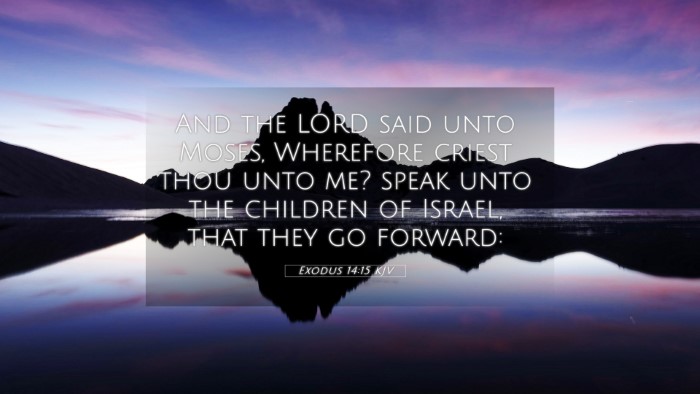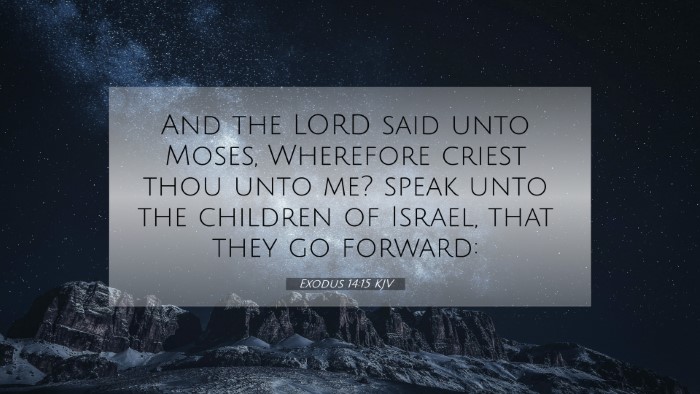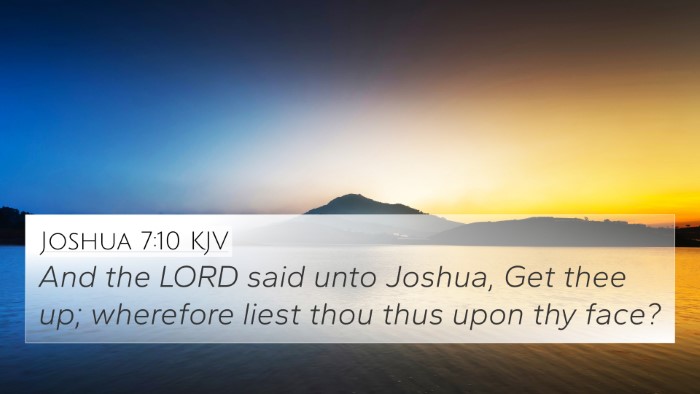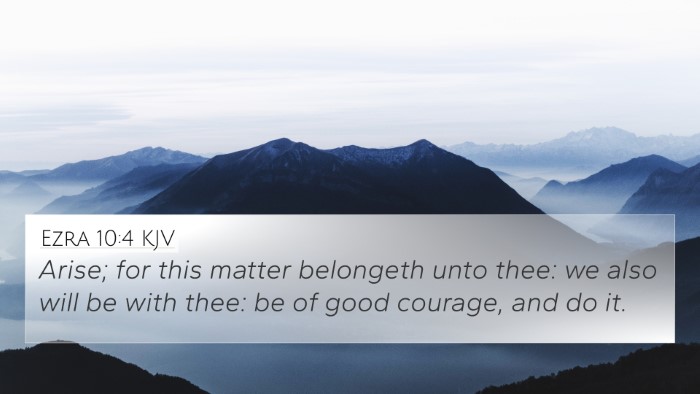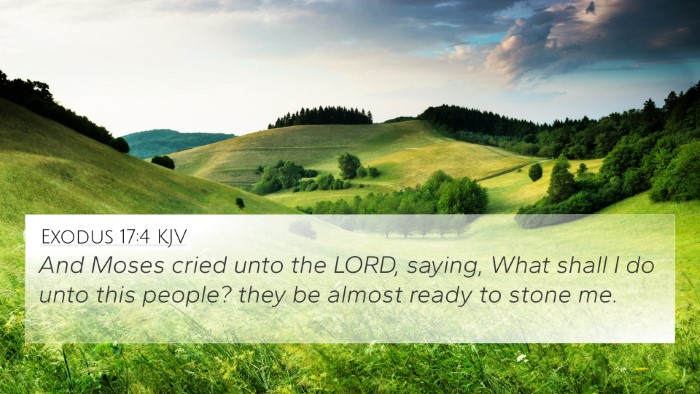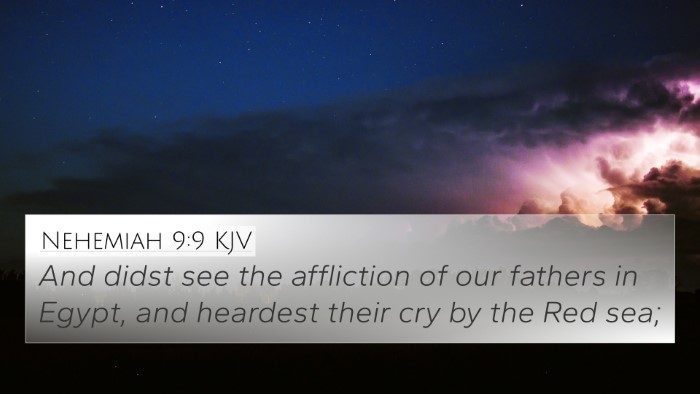Understanding Exodus 14:15
Verse: "And the Lord said unto Moses, Wherefore criest thou unto me? speak unto the children of Israel, that they go forward."
Contextual Analysis
Exodus 14:15 occurs during a critical moment in the Exodus narrative when the Israelites find themselves trapped between the Red Sea and the pursuing Egyptian army. This verse reveals a significant interaction between God and Moses, emphasizing the pressing need for action amidst desperation.
Insights from Commentaries
Matthew Henry's Commentary
Matthew Henry describes this moment as one of great fear, yet God's response highlights the necessity of faith over fear. God instructs Moses, indicating that prayer must be accompanied by action. This showcases the balance between seeking divine assistance and actively responding to God’s guidance.
Albert Barnes' Notes
Albert Barnes explains that God's question to Moses underscores the futility of excessive lamentation and emphasizes the call to faith and obedience. Barnes notes that the command to "go forward" reflects God's sovereignty and power, illustrating that God's plans will unfold despite human uncertainties.
Adam Clarke's Commentary
Adam Clarke emphasizes the significance of movement in faith. He argues that God’s instruction to move forward serves as a metaphor for spiritual progression, encouraging believers to act in faith. Clarke posits that the act of stepping forward symbolizes trust in God's deliverance.
Thematic Connections to Other Bible Verses
This verse connects with several other key scriptures that further enrich its meaning:
- Isaiah 43:16-19: God makes a way where there seems to be no way, reaffirming the theme of divine intervention.
- Philippians 3:13-14: The call to forget what is behind and press on towards the goal relates to the command to move forward.
- Hebrews 11:29: The faith of the Israelites in crossing the Red Sea exemplifies trusting God's promises.
- Psalms 20:7: Trusting in the name of the Lord reflects the concept of reliance on divine help.
- 2 Corinthians 5:7: Walking by faith and not by sight connects to the Israelites' movement into the unknown.
- Joshua 1:9: The call to be strong and courageous mirrors God's encouragement to the Israelites.
- Romans 8:31: If God is for us, who can be against us? Elucidates the support provided when following God's command.
Exploring Inter-Biblical Dialogue
Exodus 14:15 invites a comparative analysis of faith and action across both Testaments. The response of God to Moses serves to initiate an inter-Biblical dialogue that explores how divine guidance is often accompanied by human responsibility.
Connections Between Bible Verses
Many believers seek to understand the connections between scriptures. For instance:
- Jesus' command to the disciples to go out and make disciples (Matthew 28:19-20) reflects the idea of moving forward in mission.
- The call to action found in James 2:26, where faith without works is dead, mirrors the need for Israel to demonstrate faith through motion.
Applications for Today's Readers
The call to "go forward" serves as a compelling reminder of the necessity to act in faith, particularly in difficult seasons. Believers are encouraged to identify what forward movement looks like in their own contexts, whether it be through practical steps of faith, serving others, or stepping into new opportunities God has presented.
Conclusion
Exodus 14:15 illustrates that while it is natural to cry out in moments of despair, God prompts us to progress in faith. The insights gleaned from public domain commentaries enrich our understanding, encouraging believers to engage actively with God's plans.
Using Bible Cross-References
To deepen your study, consider employing a Bible cross-reference guide or a Bible concordance to explore themes in Exodus connect with broader scriptural narratives. Engaging in cross-reference Bible study can illuminate connections, enriching understanding and application.

